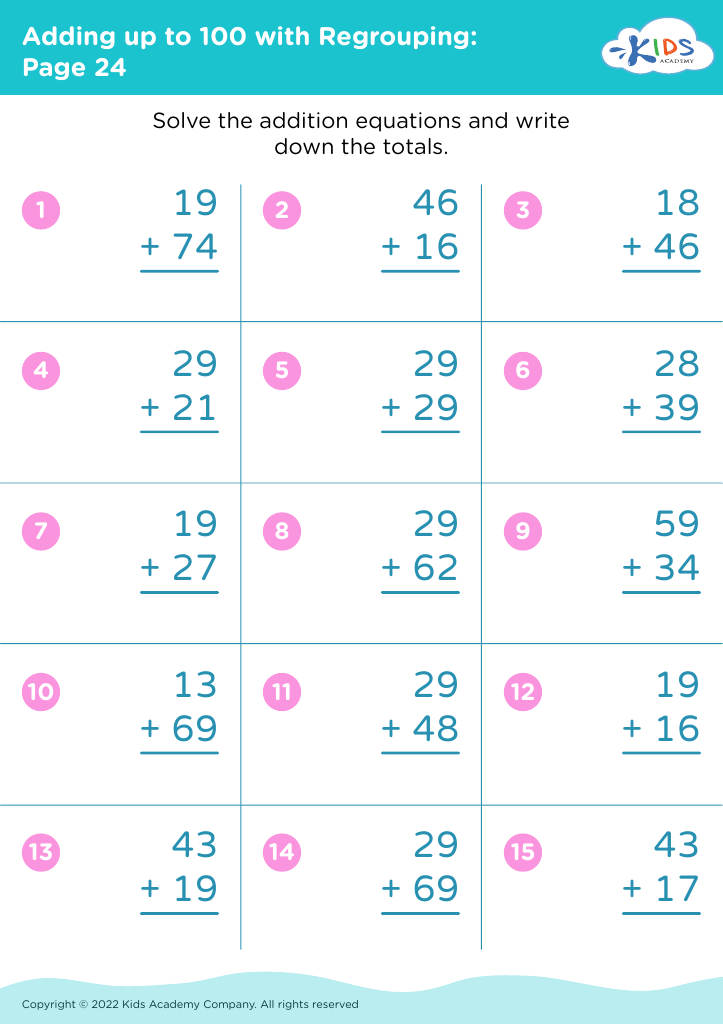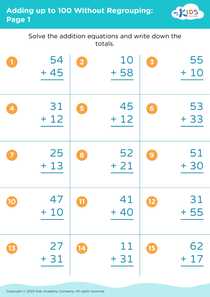Shape Recognition Adding up to 100 with Regrouping Worksheets
5 filtered results
-
From - To
Explore our engaging "Shape Recognition Adding up to 100 with Regrouping Worksheets" designed to enhance early math skills for young learners. These worksheets combine the foundation of shape recognition with the essential concept of adding up to 100, helping students visualize and connect geometric figures with mathematical operations. Through interactive exercises, children will discover how to categorize shapes while mastering regrouping techniques in addition. Perfect for classroom or home use, these resources foster critical thinking and problem-solving skills in an inviting and supportive environment. Download today and watch your child's confidence in math grow along with their understanding of shapes!
Shape recognition and addition with regrouping are foundational skills that significantly contribute to children's cognitive development. For parents and teachers, fostering these skills is crucial for several reasons.
Firstly, shape recognition enhances spatial awareness and geometry understanding, important for higher math concepts later in life. Children learn to identify various shapes, which helps them make sense of the world around them. Recognizing shapes also aids in developing problem-solving skills as they classify and compare.
Secondly, mastering addition with regrouping reinforces numeracy skills. It moves children beyond simple counting to understanding place value and number relationships. This practice builds a solid mathematical foundation essential for success in more complex arithmetic operations.
Moreover, these concepts promote critical thinking and help children develop perseverance. By working through challenges in shape recognition or regrouping, children learn to approach problems systematically.
Additionally, early mastery of these skills boosts confidence as children realize they can tackle math challenges, encouraging a positive attitude towards learning. Ultimately, parents and teachers should prioritize these areas in early education curricula to foster lifelong learning and a love for mathematics, paving the way for children's future academic and personal success.



















